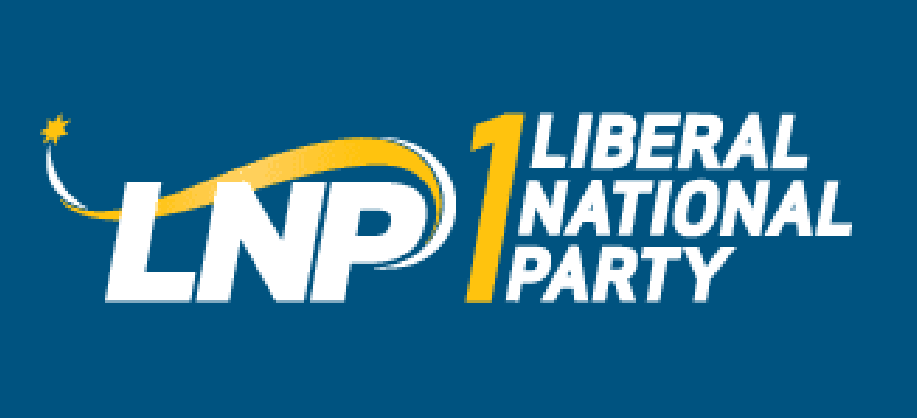Constitution Alteration (Aboriginal and Torres Strait Islander Voice) 2023 – Speech in the House of Representatives 24/05/23
Hansard 24/05/2023 House of Representatives
Mr LLEW O’BRIEN (Wide Bay) (18:43): I rise to speak on the Constitution Alteration (Aboriginal and Torres Strait Islander Voice) 2023. This is the bill that provides the detail of the constitutional change all Australians will be voting on in a referendum later on in the year. The bill confirms that we will be asked if we want to permanently include a race based agency called the Voice that may make representation to parliament and executive government on matters relating to Aboriginal and Torres Strait Islander Australians. Both sides of the debate agree that this is not an insignificant change and that either a ‘yes’ or a ‘no’ outcome will have an effect on our nation.
The passing of this bill signals the referendum campaign’s start proper—as I suppose you could describe it—but it also signals the end of Prime Minister Albanese’s highly selective process to formulate the constitutional change being proposed. It is a process that has involved handpicked academics and professional elites, ignoring the fact that every Australian owns an equal share of our Constitution and that any change should be shaped by all its citizens.
Referendums have typically involved all of us having a very inclusive conversation—a national conversation—about the changes proposed. This has involved constitutional conventions open to citizens, like the one that we had in order to examine whether we wanted to be a republic or not. Also, the Electoral Commission usually delivers to every household a pamphlet that explains the ‘yes’ and the ‘no’ cases so that when people go to the ballot box they do so informed.
Labor’s approach to this referendum has been very different. There won’t be any constitutional convention for all Australians, and there was an attempt to kill off the ‘yes’ and ‘no’ pamphlet. Not only does Prime Minister Albanese’s our-way-or-the-highway approach go against long-held agreement that a referendum of this nature must have bipartisan support, it has also contributed to an environment of nastiness, where we’ve seen insults and accusations flourish.
Given the tone of the debate so far, it needs to be said, unfortunately, that it is perfectly okay to vote ‘no’. Voting ‘no’ at this referendum doesn’t mean you’re a racist or dispassionate about closing the gaps between disadvantaged Aboriginal Australians and mainstream Australia. Indeed, many Aboriginal Australians will be voting ‘no’. This number of citizens appears to be growing rapidly, which then raises the very relevant question: what if a large proportion of Aboriginal and Torres Strait Islander people vote ‘no’ but the ‘yes’ vote is successful due to a non-Indigenous majority? Forcing a large number of Aboriginal Australians onto this new system against their will would resemble historic, paternalistic policies from the past that everyone agrees should never have happened and are a national shame.
I haven’t come to my position lightly or due to the position of my political party to say ‘no’. Coming to my position has been done with an open mind and an open heart and a genuine desire to see positive change. But there are multiple reasons why I can’t support this proposal. Firstly, there is a difference between constitutional recognition and the structural change the government proposes. I’m open to acknowledging in our Constitution that before colonisation Australia was occupied by people who also migrated here but many thousands of years earlier. Aboriginal Australians hold an important and unique place in our nation’s identity, and their identity should be recognised and celebrated fittingly. But this proposal goes far beyond constitutional recognition as the average Australian would define it. This proposal is designed to substantively change the Constitution and the structure of government. Those are words from the Uluru statement. As well as constitutional recognition, the statement speaks of self-determination and its being achieved through constitutional change. Of course, government programs directed specifically at any group of disadvantaged Australians should be informed by those who government is trying to help. But, like the very disadvantage an advisory body may be created to address, that advisory body should not be accepted as permanent, and therefore should not be enshrined in the Constitution.
My view of self-determination is that it happens very much at the level of self, not of government. When a person chooses the right path and takes positive actions to achieve the future they hope for, they practise self-determination. When we take responsibility for the good and the bad we do and learn from those choices, we all are practising self-determination. The Uluru statement speaks of high rates of incarceration within the Aboriginal population, and no doubt the Voice would be called upon to advise government on solutions to these terrible statistics. I believe the answer to lowering these rates doesn’t lie within a ‘yes’ vote to enshrine within our Constitution a new bureaucracy; it is held within each individual. Real and lasting self-determination happens when an individual chooses not to commit the crime; not when government changes the law or lowers the bar or, even worse, when government ignores the crime and pretends it isn’t happening. Real self-determination is the same for everyone regardless of race or any other attribute. Most often, when people make the right choices in life, they find they are free from government intervention. The Voice seeks a kind of self-determination that focuses more on the design of government policy and less on encouraging the individual to eliminate government dependence and intervention in their life.
Much of the concerns on the ‘no’ side of the debate revolve around the scope of the Voice, and particularly its role in providing advice to executive government and what is meant by ‘matters relating to Aboriginal and Torres Strait Islander people’. It’s a simple fact that only the High Court will be able to resolve these questions raised because of the very broad and vague nature of this set of words. ‘Executive government’ is quite a technical term that includes more than just the Prime Minister and his mates in cabinet. ‘Executive government’ also includes the entire Commonwealth bureaucracy. That’s every Commonwealth department and agency right up to the Governor-General. It raises the real prospect that every one of these may be required to consider if a program, policy or investigation being initiated is a matter relating to Indigenous Australians and if the Voice needs to be consulted before proceeding. If the Voice or other activists believe it should have been and wasn’t, it will be off to the High Court on a very well-worn path. I know people who want to vote for constitutional recognition and an enshrined advisory body within the Constitution but will say no because of the concern about the vague and risky nature of this proposal and what it will do to our system of government if put in the hands of the High Court, who will ultimately determine its actual scope.
Another relevant concern about the Voice is that it breaches human rights principles by creating a class of citizenship with greater rights than others. Without limiting the Voice’s advice to specific or special laws with respect to Aboriginal and Torres Strait Islander people, it risks creating a system where laws that apply equally to Aboriginal and non-Aboriginal Australians are still within the scope of the Voice. This will create a system of governance that embraces racial preference where non-Aboriginal Australians won’t have equal treatment by government in matters that are not specific to Aboriginal Australians alone. While we must do all we can to take practical action to close gaps between mainstream Australia and disadvantaged Aboriginal and Torres Strait Islander Australians, for me, it doesn’t extend to permanently enshrining a racial divide and inequality in the Constitution which I believe has the potential to do more harm through disunity than good.
All Australians currently have a voice to parliament via our representative democracy and their participation in it. Aboriginal representation in our democratic system is at an all-time high, a significant development that all Australians should be so proud of. That all Australians democratically elected these members and senators speaks to our nation’s health and the progress of true reconciliation. It also speaks to the will of our nation to address Aboriginal disadvantage by using our precious and hard-fought-for democracy through equality. While there is much to do, all our voices, including the current representative bodies, Aboriginal members and senators, as well as the Minister for Indigenous Australians, are already contributing to better opportunities and outcomes for many disadvantaged Aboriginal Australians. Many of the gaps are closing, and we need to maintain the focus on practical measures.
That leads me to what I believe is the most substantial reason this proposal should not be supported, and that is its lack of substance. At no time has it been demonstrated how the Voice will make real improvements to the lives of disadvantaged Aboriginal Australians. How will it affect real change more than the Aboriginal and Torres Strait Islander voices that already exist and advise government?
As it stands today, the Constitution treats every Australian citizen equally. It is everyone’s Constitution, and we are all brothers and sisters enjoying that equal citizenship. But we must also remember that this is the Constitution we will pass on to future generations of Australians. My conscience tells me I have to make decisions that will unite our children, not divide them, into the future. That is why I’m saying no to this legislation. I’ll be saying no at the referendum, and I’ll be voting no to the Voice.
(ENDS)


